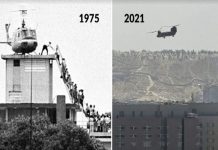The renovation of the casino in the Black Sea port of Constanta to its pre-war glory, has uncovered some of the secrets of Romania’s dark communist past.
On May 9, restorers found a scrap of paper with the names of 16 political detainees buried in one of the walls.
The note didn’t say much: it had the date, December 31, 1951, and the names of the detainees. But the scrap of paper was not only of historical importance, it was a revelation for one woman who’d heard the story many years ago from her father, but had been convinced it was a simple legend.
The men were political prisoners at the Poarta Alba labor camp, sentenced and convicted after they’d fallen afoul of the newly installed communist regime. They had been deployed to the casino to rebuild it after it was bombed by the Germans during World War II.
A daughter’s memory
According to testimony, the work was grueling. The prisoners worked from 14-16 hours a day and slept outside, eating what they could find. Reports said they ate animal organs when there was nothing else available.
Info Sud-Est and G4Media found the daughter of one of the men whose name is on the note to give a human face to the story.
Laura Voicila’s father, Nicolaie Voicila, had been a rebellious schoolboy when he was sent to a communist prison, one of an estimated 500,000 Romanians who endured cold, hunger, beatings, psychological torture and a lack of heat often because they had simply fallen afoul of the communist regime.
As harsh as the work on the casino was, it saved him from the notorious Danube-Black Sea Canal which was built under pressure from Stalin, ostensibly for economic reasons, to cut 170 miles off the route from the Danube to the Black Sea. But it had the more sinister purpose of wiping out the middle class; landowners, priests, professors, and students like Voicila.
It became known as the „The Canal of Death,” and tens of thousands are believed to have perished there.
Voicila said that her father had implored her “until his dying breath” to go to Constanta and dig out all the messages which were incarcerated in the walls of the casino. She says he told her prisoners wrote poems, scribbled down thoughts, and left notes when they labored there 70 years ago.
One prisoner’s story
Nicolaie Voicila wasn’t even 18 when the Securitate secret police picked him up from school and threw him in prison in Jilava, a dusty village south of Bucharest which is famous for the prison and not much else.
The teen had set up an artistic group where youngsters met up and talked about literature and politics, which attracted the attention of the newly-installed communist regime.
It was 1949, and Romania was still reeling from the abdication of King Michael two years earlier. The communist regime was in its early days. The 17-year-old and like-minded youths naively wanted to plot against the new leaders: Petru Groza, Gheorghe Gheorghiu Dej and Ana Pauker “and send them back to the dark place they had come from.”
On March 29, 1950, a court condemned the young Voicila to four years in prison for “plotting against the social order.”
He was dispatched to the infamous Danube canal with thousands of other “unhealthy elements” where he endured starvation, exhaustion and beatings. But the communists saw a better use for the delicate Voicila who had a gift for drawing.
He was sent to work restoring the casino along with 15 other political prisoners.
He was one of the youngest on the team and worked under Constantin Joja, an architect who was the chief builder on the project. On the last day of 1951, Romanians were getting ready for the new year, the prisoners wrote a note.
What did the note say?
The note, which is written in calligraphy, shows the refinement, creativity and aesthetic sense of the men, even when they found themselves in the grim circumstances.
“Political prisoners worked on this casino on this day, 31, December, 1951, led by the architect Joja Constantin. The team of builders were managed by Rusu A Ioan, Botoș Dumitru from Arad county, Jercau Constantin, Ciscau Gheorghe, Coras Ionel, Voicila Nicolaie,Sava Nicolae, Pop Ioan, Vladescu Ilie, Hosu Petre, Hosu Ghegor, Anastasiu Stefan, Gorbovan Gh., Bamer Fidel and Morton Iuliu.”
The men were working on the architectonic ornaments executed in stucco or simple plaster which would be placed inside the building.
Painful memories from the casino
Nicolaie Voicila lived long enough to be set free from prison and see the collapse of communism, before dying in 1999.
His daughter told G4Media and Info Sud-Est that she first learned about his incarceration when she was 10. “He said when we grow up, my brother and I have to go to the casino and look for the messages in the walls. He told us exactly where to look.”
He said the messages had one aim:” I was here. Don’t forget me.”
„My father was convinced that one day, the letters, poems and other messages would be discovered by someone. Look, it’s happened 70 years later,” she said.
She said prisoners would write a note with a pencil, ripping off pieces of paper from cement sacks. “They improvised with what they could find,” and put them in jars and to protect them and hid them in walls.
Sadly, Laura Voicila thought the stories “were a kind of legend” and never went looking for them.
Voicila died aged 68 of cancer, leaving behind his wife, who asked her grandson: “If they renovate the casino, look for the messages.”
” But I said, they can’t be there, how can I find them? Laura Voicila said.
My Dad was telling the truth
When she read about the note that was found on May 9, she burst into tears.
“Dad was right all along. When I saw his name, it seemed incredible. Dad would beg us to to pay people and find these testimonies. Now I can see he was right. Otherwise people wouldn’t be talking about them.”
A place of suffering
The casino is one of the finest example of Art Nouveau architecture in all of Romania, but for Voicila, it was a place of suffering.
”They slept there in December. It didn’t have windows and when there was a storm, the waves came in. His only satisfaction was that he escaped the canal, and was building something beautiful with his hands,” she said.
A surprise
“We want to find these notes from a moral point of view,” Paul Andreescu told universul.net, adding that the association had no knowledge of them, prior to the May 9 find. “We are waiting for other notes, too,” he said.
Constanta city hall intends to keep the notes and will display them after the casino is restored, he said.
“This is a good solution. It is the history of the casino, and the history of our country.”
Late comfort
Laura Voicila if not some form of moral reparation, at least some comfort, 70 years later.
My father suffered a lot, in detention and in the communist era and after the revolution when he saw the informers and torturers on the street, in town, free with big pensions.”
“I have never been there. Now I will go there once the state of emergency ends.





















Excellent article that will, I hope, be useful for future researchers into the criminal history of the Communist regime.
Did they find any bones?
I don’t want to lower the tone but the comment „they ate animal organs” makes me think of the irony of how we, all those years later, think eating animal organs in the form of processed meat is a very good idea. My son Luca says it causes cancer.